
Aquarium is the debut studio album by Danish-Norwegian band Aqua, released on 26 March 1997. Although the group had been together for three years under their original name Joyspeed, their only release under that name was a single called "Itzy Bitsy Spider". The album is best known for including the successful singles "Barbie Girl", "Doctor Jones" and "Turn Back Time", the first of those being a huge hit around the world.

Titiyo Yambalu Felicia Jah is a Swedish singer and songwriter who has won four Grammis.

"Venus" is a song by Dutch rock band Shocking Blue, initially released as a single in the Netherlands in the summer of 1969. Written by Robbie van Leeuwen, the song topped the charts in nine countries.
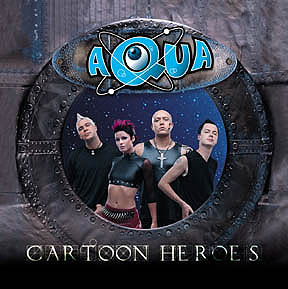
"Cartoon Heroes" is a song by Danish-Norwegian dance-pop group Aqua from their second studio album, Aquarius. The song was sent to radio stations worldwide on 1 January 2000 and was released as a retail single on 31 January 2000. It was their first release anywhere for over 14 months due to the time spent touring the world, resting, and recording Aquarius.
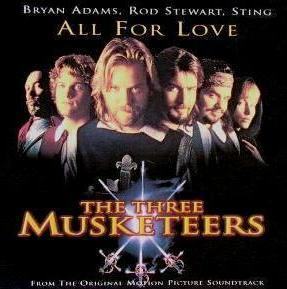
"All for Love" is a song written by Bryan Adams, Robert John "Mutt" Lange, and Michael Kamen for the soundtrack The Three Musketeers: Original Motion Picture Soundtrack. It is performed by Adams, Rod Stewart, and Sting. The power ballad was released as a CD single in the United States on November 16, 1993. It was a worldwide hit, reaching number one across Europe, in Australia and in North America.

"Take a Chance on Me" is a song by Swedish pop group ABBA, released in January 1978 as the second single from their fifth studio album, ABBA: The Album (1977). Agnetha Fältskog and Anni-Frid Lyngstad share the lead vocals on the verses and choruses, with Fältskog singing two bridge sections solo. It reached the top ten in both the UK and US. The song was notably covered by the British band Erasure.

"Ring My Bell" is a 1979 disco song written by Frederick Knight. The song was originally written for then eleven-year-old Stacy Lattisaw, as a teenybopper song about kids talking on the telephone. When Lattisaw signed with a different label, American singer and musician Anita Ward was asked to sing it instead, and it became her only major hit.

"Breathe" is a song by English band the Prodigy, released in November 1996 as the second single from their third album, The Fat of the Land (1997). It became the group's second consecutive number-one in the United Kingdom and also topped the charts in the Czech Republic, Denmark, Finland, Hungary, Ireland, Norway, and Sweden. The song features a drum break from the song "Johnny the Fox Meets Jimmy the Weed" of the group Thin Lizzy. The whiplashing sword sound effect is a sample of the song "Da Mystery of Chessboxin", by Wu-Tang Clan. As in "Firestarter", Jim Davies played the guitar in the song. In 2003, Q Magazine ranked "Breathe" number 321 in their list of the "1001 Best Songs Ever".
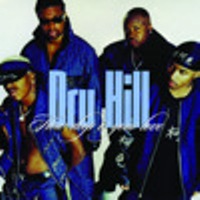
"How Deep Is Your Love" is an R&B single by group Dru Hill. It is the first single from the group's second album, Enter the Dru. The song was released on September 22, 1998. It spent three weeks at number-one on the US R&B chart, and peaked at number three on the US Billboard Hot 100 chart. The song, in its single version with rapper Redman, was also used in the end credits and is featured on the soundtrack to the 1998 film Rush Hour. To date, this is Dru Hill's highest charting hit.

"No Matter What" is a song from the 1996 musical Whistle Down the Wind that was popularised by Irish boyband Boyzone in 1998 when they recorded it to tie in with the show's first UK production. The song was written by Andrew Lloyd Webber and Jim Steinman, while Lloyd Webber, Steinman and Nigel Wright produced the track, with additional production by Franglen & Lupino. The song was also featured on the US edition of the soundtrack to the 1999 film Notting Hill, and was released to American radio on 10 May 1999.

"Tell It to My Heart" is a 1987 song performed by American singer Taylor Dayne, released as her first single from her first album of the same name. The single was Dayne's first major exposure, and she soon became known for her up-tempo, dance-oriented music. The song was written by Chappell Music staff songwriter Seth Swirsky and Ernie Gold. Swirsky almost did not deliver the song to his publisher after he and his girlfriend decided it was not good enough.

"Come with Me" is a song recorded by the American rapper Puff Daddy, featuring English guitarist Jimmy Page, from the soundtrack to the 1998 film, Godzilla. The song recreates the 1975 Led Zeppelin song "Kashmir". Jimmy Page and producer Tom Morello also supplied live guitar parts. The song also features heavy orchestral elements.
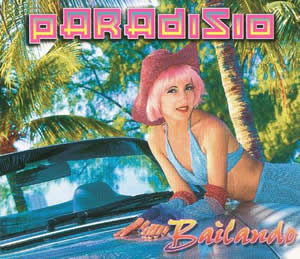
"Bailando" is a song by Belgian group Paradisio. It was released in May 1996 as the lead single from their debut album, Paradisio. The song is produced by Patrick Samoy and Luc Rigaux and reached number-one in Italy, Denmark, Norway, Finland and Sweden. It peaked at number 2 in Belgium. In Sweden, it was the best selling single by being triple platinum. The song was a hit in most countries across Europe during the summer of 1996-1997.

"Power to All Our Friends" is a song by Cliff Richard which was chosen as the British entry to the Eurovision Song Contest 1973, by a postal vote which was decided by BBC viewers after Richard performed six contending songs on A Song For Europe, featured on Cilla Black's BBC1 Saturday evening show Cilla. The runner-up song was "Come Back Billie Jo", written by Mitch Murray and Tony Macaulay, which was included as the B-side on the single. "Power to All Our Friends" came third in the Eurovision Song Contest.

"Born to Be Alive" is a song written by French singer Patrick Hernandez. It became a worldwide hit and reached number one on the US Disco chart in spring 1979. It was first conceived as a hard rock song.

"Gotham City" is a song by American R&B singer R. Kelly based on the fictional city of the same name. It was featured on the soundtrack to the film Batman & Robin, and it reached number nine on both the US Billboard Hot 100 and Hot R&B/Hip-Hop Songs charts. In Europe, the song peaked within the top 10 in Germany, Hungary, the Netherlands, Sweden, Switzerland and the UK, and within the top 20 in Iceland, Ireland and Scotland. The music video for the song was directed by Hype Williams. A remix version for the song was released featuring rapper Strings with a video also directed by Williams.

"Remember Me" is a 1997 song by British DJ Alexis 'Lex' Blackmore under his pseudonym Blue Boy. It peaked at No. 8 on the UK Singles Chart in February 1997 and No. 2 on the American dance chart. Additionally it peaked within the top 10 in Denmark, Finland, Iceland, Ireland, Norway, Scotland, Spain, Sweden and Switzerland. On the Eurochart Hot 100, the track reached No. 13.

"Sexy and I Know It" is a hit song by American duo LMFAO from their second studio album, Sorry for Party Rocking. It was released as the third single from the album on September 16, 2011. The song was written by Stefan Kendal Gordy, GoonRock, Erin Beck, George M. Robertson and Kenneth Oliver, and it was produced by Party Rock. It went to number one on the Billboard Hot 100 on January 7, 2012, and remained there for two weeks.

"Samba de Janeiro" is a song by German pop group Bellini. It was released on 5 May 1997 in Germany and on 15 September in the United Kingdom as the lead single from their debut album of the same name. The song was a hit throughout Europe, reaching number-one in Hungary and the Top 10 in at least 12 countries. It interpolates the chorus of Airto Moreira's 1972 song "Tombo In 7/4", as well as samples the drum rhythm from Moreira's "Celebration Suite". "Samba de Janeiro" won the award for best dance single at the 7th Annual Echo Awards.
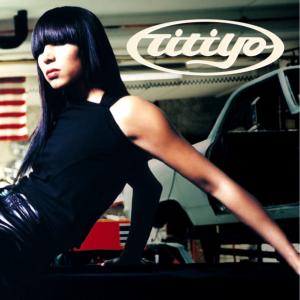
Come Along is the fourth studio album by Swedish recording artist Titiyo. It was released on August 20, 2001 on WEA/Superstudio Blå. All music was composed by Peter Svensson, lyrics were written by Svensson and Joakim Berg, and production was handled by Tore Johansson. The album's lead single, "Come Along", reached the first place in GLF and was awarded a Swedish Grammis Award in the category Song of the Year. "1989" was released as the second and final single off the album.




















